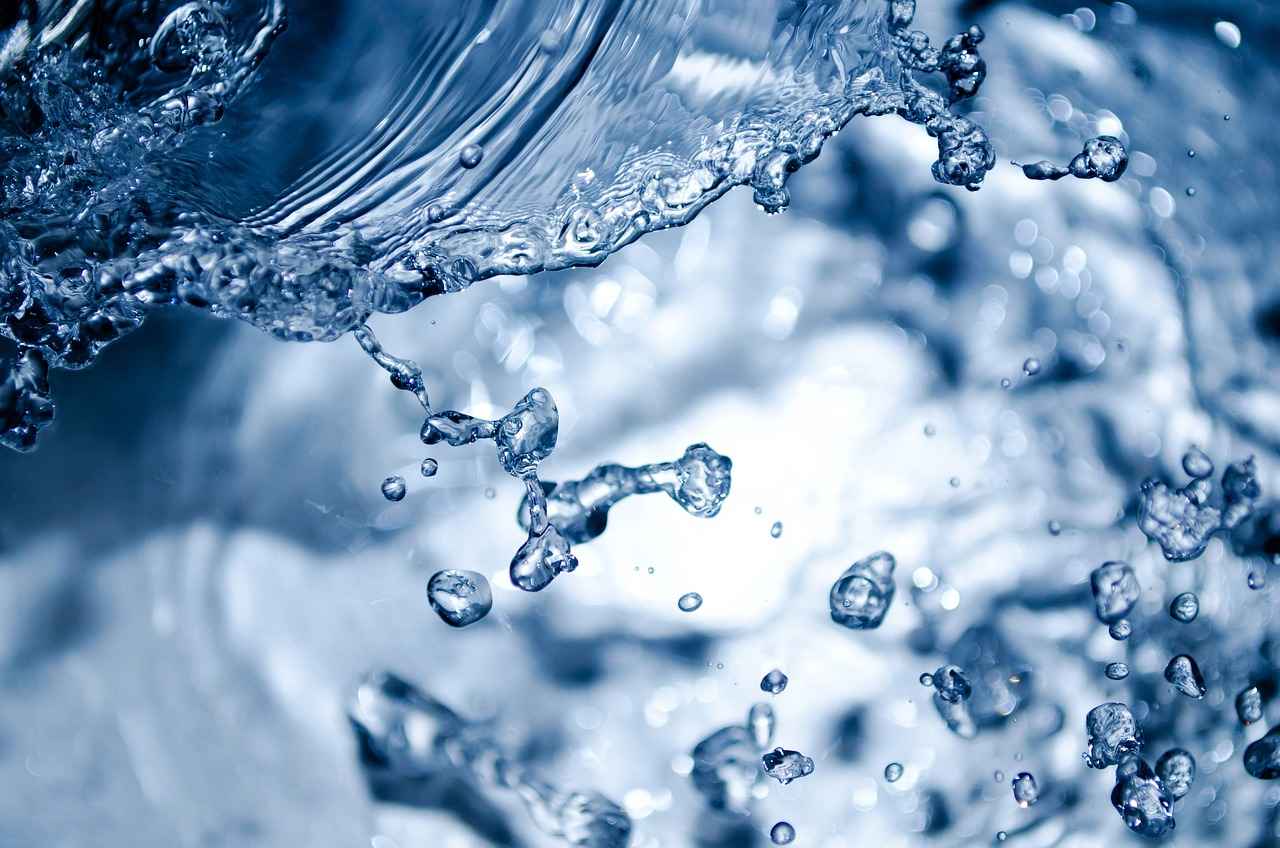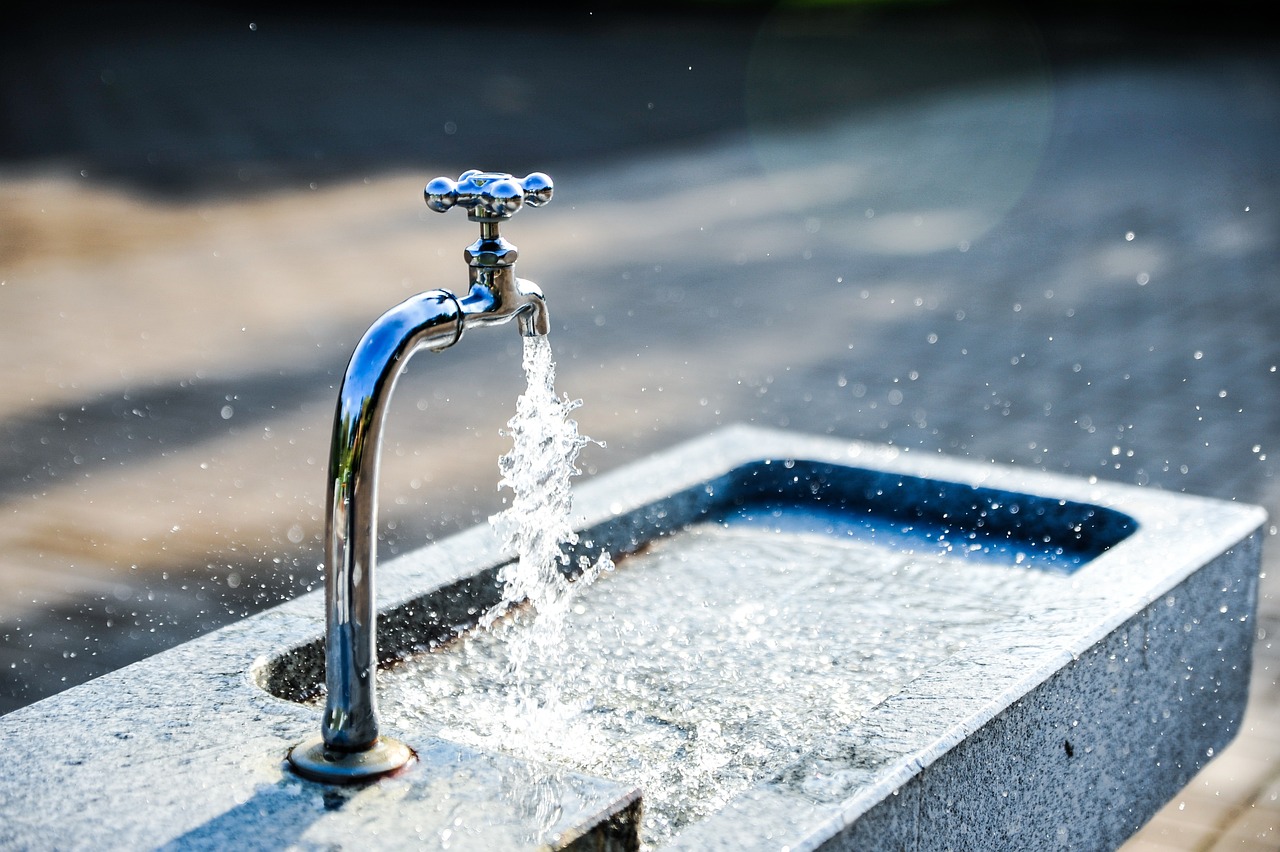This article serves as a comprehensive guide on how to initiate a water fast safely and effectively, covering essential tips, health benefits, and potential risks involved in the process. Water fasting is a method that has gained popularity for its potential health advantages, but understanding how to approach it correctly is crucial.
What is Water Fasting?
Water fasting entails abstaining from all food and caloric beverages and consuming only water. This practice allows the body to enter a state of ketosis, where it begins to utilize stored fat for energy. Understanding its definition and purpose is crucial for anyone considering this fasting method.
Health Benefits of Water Fasting
- Detoxification and Cellular Repair: During a water fast, the body initiates detoxification processes, allowing cells to repair and regenerate. This section delves into how fasting promotes cellular health and overall well-being.
- Autophagy: The Body’s Cleanup Mechanism: Autophagy is a natural process where cells remove damaged components. Understanding its role during fasting can highlight the importance of water fasting for health maintenance.
- Improved Insulin Sensitivity: Water fasting can enhance insulin sensitivity, leading to better blood sugar control. This subheading discusses how fasting impacts insulin levels and metabolic health.
- Weight Loss and Fat Burning: Water fasting can lead to significant weight loss by promoting fat burning. This section examines the mechanisms behind weight loss during fasting and its sustainability.
Preparing for a Water Fast
Proper preparation is essential for a successful water fast. Here are some steps to take before starting:
- Consulting a Healthcare Professional: Before initiating a water fast, consulting a healthcare provider is crucial, especially for individuals with pre-existing health conditions. This emphasizes the importance of professional guidance.
- Setting Realistic Goals: Establishing achievable goals can enhance motivation and commitment during a water fast. This section discusses how to set appropriate expectations for the fasting period.
How to Start Your Water Fast
Knowing how to begin a water fast is vital for success. Here are some step-by-step instructions:
- Choosing the Right Time: Selecting an appropriate time to start fasting can influence your experience. Consider personal schedules and commitments when planning your water fast.
- Gradual Transition to Fasting: Transitioning gradually into a water fast can minimize discomfort. This section outlines how to prepare your body through dietary adjustments leading up to the fast.
Potential Risks and Side Effects
While water fasting has numerous benefits, it is essential to acknowledge potential risks and side effects. Understanding these can help you prepare effectively:
- Common Side Effects: Understanding common side effects, such as headaches and fatigue, can help individuals prepare for their fasting experience. This section discusses what to expect during the fast.
- When to Stop Fasting: Recognizing when to end a water fast is crucial for health and safety. This section outlines signs that indicate it’s time to break the fast to prevent adverse effects.
In summary, embarking on a water fast requires careful planning and consideration. By understanding the process, preparing adequately, and recognizing potential risks, individuals can maximize the benefits of this fasting method while minimizing adverse effects.

What is Water Fasting?
Water fasting is a dietary practice that involves abstaining from all food and caloric beverages, allowing only the consumption of water. This fasting method is gaining popularity among health enthusiasts and individuals seeking to improve their overall well-being. Understanding the definition and purpose of water fasting is essential for anyone considering this approach, as it provides insight into the benefits and challenges associated with the practice.
At its core, water fasting is not merely a means of weight loss; it is a holistic approach aimed at enhancing the body’s natural healing processes. During a water fast, the body enters a state of ketosis, where it starts to utilize fat stores for energy, leading to weight loss and a reduction in body fat percentage. However, the benefits extend beyond just physical appearance.
One of the primary purposes of water fasting is detoxification. When food intake is halted, the body can redirect its energy towards cleansing and repairing itself. This process allows the liver and kidneys to eliminate toxins more efficiently, promoting better organ function and overall health. Furthermore, fasting encourages autophagy, a cellular process where the body removes damaged cells and regenerates new ones, which is vital for maintaining cellular health.
Water fasting also plays a significant role in mental clarity and emotional well-being. Many individuals report enhanced focus and improved mood during fasting periods, as the body becomes less reliant on constant food intake. This shift can lead to a greater sense of mindfulness and awareness of one’s eating habits and lifestyle choices.
However, it is crucial to approach water fasting with caution. While it offers numerous benefits, it is not suitable for everyone. Individuals with pre-existing health conditions, such as diabetes or eating disorders, should consult a healthcare professional before embarking on a water fast. Preparation is key to a successful fasting experience, as it helps mitigate potential risks and side effects.
In conclusion, understanding what water fasting entails is the first step toward embarking on this transformative journey. By grasping its definition and purpose, individuals can make informed decisions about their health and wellness. Whether the goal is detoxification, weight loss, or improved mental clarity, water fasting can be a powerful tool when approached responsibly.

Health Benefits of Water Fasting
Water fasting has gained popularity in recent years, with many individuals seeking its health benefits. This method involves abstaining from all food and caloric beverages, consuming only water for a specified period. The are numerous and can motivate individuals to embark on this journey.
Many individuals undertake water fasting for various health benefits, including detoxification, improved metabolic health, and potential weight loss. Exploring these advantages can motivate a successful fasting experience.
One of the primary benefits of water fasting is its ability to facilitate detoxification. During this period, the body initiates a process that allows it to eliminate toxins and waste products. This cleansing effect can lead to improved overall health and vitality. Additionally, fasting promotes cellular repair, allowing damaged cells to regenerate and function optimally.
Autophagy is a critical process that occurs during water fasting. It is the body’s way of cleaning out damaged cells and regenerating new ones. By understanding this mechanism, individuals can appreciate the importance of fasting in maintaining cellular health. This process not only aids in detoxification but also supports longevity and reduces the risk of chronic diseases.
Another significant advantage of water fasting is its impact on insulin sensitivity. Fasting can enhance the body’s response to insulin, leading to better blood sugar control. Improved insulin sensitivity is crucial for metabolic health, as it reduces the risk of developing type 2 diabetes and other metabolic disorders. This aspect of fasting highlights its potential as a preventive measure for various health issues.
Water fasting can lead to substantial weight loss by promoting fat burning. When the body is deprived of food, it begins to utilize stored fat as an energy source, resulting in weight reduction. This section examines the mechanisms behind weight loss during fasting and its sustainability. By understanding how fasting affects metabolism, individuals can make informed decisions about their health.
Proper preparation is essential for a successful water fast. This section outlines steps to take before starting the fast to ensure safety and effectiveness.
Before initiating a water fast, consulting a healthcare provider is crucial, especially for individuals with pre-existing health conditions. This subheading emphasizes the importance of professional guidance.
Establishing achievable goals can enhance motivation and commitment during a water fast. This section discusses how to set appropriate expectations for the fasting period.
Knowing how to begin a water fast is vital for success. This section provides step-by-step instructions for starting your fasting journey safely and effectively.
Selecting an appropriate time to start fasting can influence your experience. This subheading explores factors to consider when planning your water fast.
Transitioning gradually into a water fast can minimize discomfort. This section outlines how to prepare your body through dietary adjustments leading up to the fast.
While water fasting has numerous benefits, it is essential to acknowledge potential risks and side effects. This section provides a balanced view of the challenges associated with fasting.
Understanding common side effects, such as headaches and fatigue, can help individuals prepare for their fasting experience. This subheading discusses what to expect during the fast.
Recognizing when to end a water fast is crucial for health and safety. This section outlines signs that indicate it’s time to break the fast to prevent adverse effects.
Detoxification and Cellular Repair
Fasting, particularly water fasting, is a profound practice that has gained popularity for its numerous health benefits. Among these benefits, the process of detoxification and the promotion of cellular repair stand out as critical aspects that contribute to overall well-being. This section explores the mechanisms through which fasting facilitates these processes, emphasizing the importance of cellular health.
When the body enters a state of fasting, it shifts from using glucose as its primary energy source to utilizing stored fat. This metabolic transition initiates a cascade of biological responses, one of which is the activation of detoxification pathways. These pathways are essential for eliminating toxins and waste products that accumulate in the body due to environmental factors, dietary choices, and metabolic processes.
During fasting, the liver plays a crucial role in detoxification. It enhances the production of enzymes that help break down and eliminate harmful substances. Additionally, the kidneys, which filter blood and remove waste, become more efficient during this period. This enhanced efficiency can lead to improved overall health and vitality.
Another significant process that occurs during fasting is autophagy. This is the body’s natural mechanism for cleaning out damaged cells and regenerating new ones. During autophagy, cells break down and recycle their components, which not only helps in removing dysfunctional proteins but also supports cellular repair and regeneration. The activation of autophagy is particularly beneficial as it can mitigate the effects of aging and reduce the risk of various diseases.
- Cellular Regeneration: Fasting promotes the regeneration of cells, allowing the body to repair itself from the inside out.
- Enhanced Immune Function: Detoxification during fasting can bolster the immune system, making it more effective at fighting infections.
- Reduction of Inflammation: Fasting has been shown to reduce inflammation levels in the body, which is linked to numerous chronic conditions.
Furthermore, the benefits of fasting extend beyond mere detoxification. Research indicates that fasting can improve cellular resilience, allowing cells to better withstand stressors. This resilience is crucial for maintaining health, as it can help prevent cellular damage that leads to chronic diseases.
It is also noteworthy that the mental clarity and emotional stability often reported during fasting may be linked to the detoxification processes occurring in the brain. As the body cleanses itself of toxins, cognitive function can improve, leading to enhanced focus and a sense of well-being.
In conclusion, the processes of detoxification and cellular repair during water fasting are essential for promoting health and longevity. By engaging in fasting, individuals may experience a profound transformation in their overall well-being, making it a valuable practice for those seeking to enhance their health. Understanding these mechanisms can empower individuals to approach fasting with greater awareness and intention, ultimately supporting their journey toward optimal health.
Autophagy: The Body’s Cleanup Mechanism
Autophagy is an essential biological process that plays a crucial role in maintaining cellular health and function. This process involves the degradation and recycling of damaged cellular components, allowing cells to eliminate waste and regenerate more effectively. During periods of fasting, particularly water fasting, autophagy is significantly enhanced, highlighting the importance of this practice for overall health maintenance.
When the body is deprived of food, it enters a state of metabolic adaptation. This transition triggers a cascade of cellular responses, one of which is autophagy. During fasting, the body shifts its energy sources from glucose to fat, and in this process, it also begins to clean up damaged organelles, misfolded proteins, and other cellular debris. This cleanup mechanism is vital because it not only helps to maintain cellular integrity but also plays a role in preventing diseases, including cancer and neurodegenerative disorders.
The benefits of autophagy extend beyond mere cellular cleanup. Research indicates that enhanced autophagy can improve insulin sensitivity and promote better metabolic health. By removing dysfunctional components from cells, autophagy helps to optimize cellular function and energy utilization. This can lead to improved blood sugar control, which is particularly beneficial for individuals at risk of type 2 diabetes.
Moreover, autophagy has been linked to longevity. Studies suggest that the activation of autophagy pathways can extend lifespan by promoting cellular repair mechanisms and reducing the accumulation of cellular damage over time. This is particularly relevant in the context of aging, where the body’s ability to clear damaged components tends to decline.
During a water fast, the increase in autophagy can also facilitate detoxification. As the body breaks down and eliminates damaged cells, it can also expel toxins that have accumulated over time. This detox process supports overall health and can contribute to a feeling of rejuvenation post-fast.
However, while autophagy presents numerous benefits, it is essential to approach water fasting with caution. Individuals considering this practice should be aware of potential risks and should consult with a healthcare professional, especially if they have pre-existing health conditions. It is crucial to ensure that fasting is conducted safely and effectively to maximize benefits while minimizing adverse effects.
In summary, autophagy serves as the body’s natural cleanup mechanism, particularly during fasting. By understanding its role and benefits, individuals can appreciate the significance of water fasting not just as a method for weight loss, but as a powerful tool for enhancing cellular health and longevity. Incorporating water fasting into a balanced lifestyle may provide a pathway to improved health and well-being.
Improved Insulin Sensitivity
Water fasting has garnered attention for its potential to enhance insulin sensitivity, a crucial factor in maintaining healthy blood sugar levels. Insulin sensitivity refers to how effectively the body’s cells respond to insulin, a hormone responsible for regulating glucose in the bloodstream. When insulin sensitivity is high, the body can utilize glucose more efficiently, leading to better metabolic health.
During a water fast, the body undergoes several physiological changes that can improve insulin sensitivity. One of the primary mechanisms involves a reduction in circulating insulin levels. When food intake is halted, insulin production decreases, allowing the body to shift from a state of storing energy to one of utilizing stored energy. This transition can help reset insulin sensitivity, making the body’s cells more receptive to insulin when food is reintroduced.
Research indicates that intermittent fasting, including water fasting, may lead to significant improvements in insulin sensitivity. A study published in the Journal of Translational Medicine found that participants who engaged in periodic fasting exhibited lower insulin levels and improved insulin sensitivity compared to those who did not fast. These findings suggest that fasting may be a beneficial strategy for individuals at risk of developing type 2 diabetes or those struggling with metabolic syndrome.
Moreover, water fasting can lead to weight loss, which is another critical component in improving insulin sensitivity. Excess body fat, particularly around the abdomen, is associated with insulin resistance. By effectively reducing body weight through fasting, individuals may experience enhanced insulin action. This is particularly relevant for those with obesity, as even modest weight loss can significantly improve insulin sensitivity and overall metabolic health.
Additionally, water fasting promotes the release of hormones that are beneficial for metabolic health. For instance, fasting increases levels of glucagon, a hormone that helps to mobilize stored fat for energy, while simultaneously decreasing insulin levels. This hormonal shift enhances the body’s ability to burn fat, further supporting weight loss and improving insulin sensitivity.
It is important to note that the effects of water fasting on insulin sensitivity can vary among individuals. Factors such as age, sex, and existing health conditions may influence the degree of improvement. Therefore, it is advisable for individuals considering water fasting to consult with a healthcare professional, particularly if they have pre-existing conditions such as diabetes or cardiovascular disease.
In conclusion, water fasting can be a powerful tool for enhancing insulin sensitivity and improving metabolic health. By reducing insulin levels, promoting weight loss, and facilitating beneficial hormonal changes, water fasting offers a multifaceted approach to better blood sugar control. However, it is essential to approach fasting with caution and professional guidance to ensure safety and effectiveness.
Weight Loss and Fat Burning
Water fasting is increasingly recognized for its potential to facilitate **significant weight loss**. This process primarily promotes fat burning through several physiological mechanisms. Understanding these mechanisms can provide insight into how water fasting works and its sustainability as a weight loss strategy.
When an individual engages in water fasting, the body undergoes a series of metabolic changes. Initially, the body depletes its glycogen stores, which are the primary source of energy derived from carbohydrates. Once these stores are exhausted, the body begins to tap into fat reserves for energy. This transition marks the onset of **ketosis**, a metabolic state where fat is broken down into ketones, which the body uses as an alternative energy source. This shift not only aids in **fat burning** but also helps to preserve muscle mass, a common concern during weight loss.
In addition to promoting fat utilization, water fasting enhances the production of **hormones** that facilitate weight loss. For instance, fasting can increase levels of norepinephrine, a hormone that boosts metabolism and encourages fat breakdown. Furthermore, fasting lowers insulin levels, which helps to reduce fat storage, making it easier for the body to access and utilize fat stores for energy.
Another important aspect to consider is the role of **autophagy**, a cellular repair process that is accelerated during fasting. This process not only helps in detoxifying the body but also promotes the breakdown of damaged cells and proteins, which can contribute to overall metabolic health. Enhanced metabolic function can lead to a more efficient fat-burning process, making fasting an effective tool for weight management.
However, while water fasting can lead to rapid weight loss, it is essential to address the issue of sustainability. The initial weight loss during a water fast is often a combination of water weight and fat loss. Once normal eating patterns are resumed, many individuals may regain some of the lost weight if they do not adopt a balanced diet and healthy lifestyle. Therefore, it is crucial to view water fasting as a potential part of a broader weight management strategy rather than a standalone solution.
To maximize the benefits of water fasting, individuals should consider integrating it with other healthy practices. This may include regular physical activity, a balanced diet rich in whole foods, and proper hydration. By combining these elements, one can enhance the effectiveness of fasting and promote long-term weight maintenance.
In summary, water fasting can be an effective method for **weight loss** and **fat burning** through various metabolic adaptations. Understanding these mechanisms not only sheds light on how fasting works but also helps individuals make informed decisions about their health and wellness journey. For those considering this approach, it is advisable to consult with a healthcare professional to ensure safety and effectiveness.

Preparing for a Water Fast
Preparing for a water fast is a crucial step that can significantly impact the overall experience and outcomes of the fasting period. Proper preparation not only enhances the effectiveness of the fast but also ensures safety throughout the process. Below are essential steps to consider before embarking on your water fasting journey.
- Consulting a Healthcare Professional: Before starting a water fast, it is vital to consult a healthcare provider, especially if you have underlying health conditions such as diabetes, heart disease, or are on medication. A professional can help assess your health status and provide personalized advice.
- Understanding Your Body: Familiarize yourself with how your body reacts to fasting. This includes being aware of any past experiences with fasting, as well as recognizing how your body typically responds to dietary changes.
- Setting Realistic Goals: Establishing achievable goals for your water fast can increase motivation. Whether your aim is detoxification, weight loss, or mental clarity, having a clear objective can help maintain focus throughout the fasting period.
- Gradual Dietary Adjustments: Transitioning gradually into a water fast can reduce discomfort. Start by eliminating processed foods, caffeine, and sugar a few days before the fast. Instead, focus on consuming whole foods, fruits, and vegetables to prepare your body for the fasting state.
- Hydration is Key: Ensure that you are well-hydrated before beginning the fast. Drink plenty of water in the days leading up to the fast to help your body adjust and to prevent dehydration during the fasting period.
- Choosing the Right Time: Select a period when you can dedicate time to rest and minimize stress. Avoid starting a fast during busy or stressful times, as this can lead to increased discomfort and difficulty in managing hunger.
- Educate Yourself: Understanding the process and effects of water fasting is essential. Research the potential benefits and side effects, and be prepared for how your body may react during the fast. Knowledge can empower you to make informed decisions.
- Support System: Consider having a support system in place. Whether it’s friends, family, or an online community, sharing your goals and experiences can provide encouragement and accountability.
By taking these preparatory steps, you can ensure a smoother and more effective water fasting experience. Remember, the goal of water fasting is not just to abstain from food, but to enhance your overall health and well-being.
Consulting a Healthcare Professional
Before embarking on a water fast, it is essential to recognize the significance of . This step is particularly crucial for individuals with pre-existing health conditions, as fasting can have varying effects on different people. Engaging with a healthcare provider ensures that you receive tailored advice based on your unique health profile.
Water fasting involves abstaining from all food and caloric beverages, consuming only water, which can lead to various physiological changes in the body. For those with underlying health issues such as diabetes, cardiovascular diseases, or eating disorders, the risks associated with fasting can be heightened. A healthcare professional can help assess your health status and provide guidance on whether fasting is a safe option for you.
- Understanding Health Conditions: Many health conditions can influence how your body responds to fasting. A medical professional can evaluate your condition and advise you on the potential risks involved.
- Monitoring Medication: If you are on medication, especially those that affect blood sugar or blood pressure, fasting may require adjustments to your dosage or timing. Consulting a healthcare provider can help manage these changes safely.
- Identifying Nutritional Needs: A healthcare professional can help identify any nutritional deficiencies that may need to be addressed before starting a fast, ensuring that your body is adequately prepared.
Moreover, the professional guidance of a healthcare provider can extend beyond the initial consultation. They can assist in establishing a personalized fasting plan that aligns with your health goals while minimizing risks. This plan may include recommendations on how to gradually transition into fasting, what to expect during the fast, and how to effectively break the fast afterward.
It is also important to discuss any mental health considerations with your provider. Fasting can sometimes trigger emotional responses or exacerbate anxiety in certain individuals. A healthcare professional can help you navigate these challenges and ensure that your mental well-being is considered throughout the fasting process.
In summary, consulting a healthcare professional before starting a water fast is not just a precaution; it is a vital step toward ensuring a safe and effective fasting experience. Their expertise can provide you with the necessary insights to make informed decisions, tailored to your health needs, ultimately leading to a more successful fasting journey.
Setting Realistic Goals
Setting realistic goals is a crucial aspect of embarking on a water fast. Without clear and achievable objectives, individuals may find it challenging to maintain motivation and commitment throughout the fasting period. This section will delve into the importance of goal-setting and provide practical strategies for establishing effective expectations during your water fast.
First and foremost, it is essential to understand that water fasting is not merely about abstaining from food; it is a holistic journey that involves mental, physical, and emotional adjustments. By setting realistic goals, you can create a roadmap that keeps you focused and encourages perseverance, especially during challenging moments.
- Define Your Purpose: Start by identifying why you are choosing to undertake a water fast. Is it for detoxification, weight loss, or perhaps spiritual reasons? Having a clear purpose will help you set specific goals that align with your intentions.
- Set Timeframes: Establish a timeframe for your fast. Whether you plan to fast for 24 hours, three days, or even a week, having a specific duration in mind can help you mentally prepare and stay committed.
- Focus on Small Milestones: Instead of overwhelming yourself with the end goal, break your fasting journey into smaller, manageable milestones. For instance, aim to complete the first 12 hours, then 24 hours, and so on. Celebrating these small victories can significantly boost your motivation.
- Listen to Your Body: While it’s important to set goals, it’s equally vital to remain flexible. Pay attention to how your body responds during the fast. If you experience excessive fatigue or discomfort, consider adjusting your goals or ending the fast sooner than planned.
Additionally, it is beneficial to keep a journal throughout your fasting experience. Documenting your thoughts, feelings, and any physical changes can provide valuable insights and help you stay accountable to your goals. Reflecting on your journey can also enhance your understanding of the process and its impact on your body and mind.
Moreover, sharing your goals with friends or a support group can foster a sense of community and accountability. Engaging with others who are also fasting can provide encouragement and motivation, making the experience less isolating.
Lastly, remember that setting realistic goals is not just about achieving a specific outcome; it’s about fostering a positive relationship with your body and understanding its needs. Embrace the journey, and allow yourself the grace to adapt your goals as necessary. This mindset will not only enhance your fasting experience but also contribute to long-term health and wellness.
In conclusion, by establishing achievable goals, you can significantly enhance your motivation and commitment during a water fast. Focus on your purpose, set timeframes, celebrate small milestones, and listen to your body. This approach will empower you to navigate the challenges of fasting with confidence and resilience.

How to Start Your Water Fast
Embarking on a water fast can be a transformative experience, but knowing how to start is crucial for maximizing its benefits while minimizing potential risks. This section outlines a detailed, step-by-step approach to ensure you begin your fasting journey safely and effectively.
Step 1: Choose the Right Time
Selecting an appropriate time to initiate your water fast is essential. Consider your schedule and lifestyle. It’s advisable to choose a period when you have fewer commitments, allowing your body to adjust without added stress. Avoid starting during busy work weeks or significant life events.
Step 2: Gradual Transition to Fasting
Instead of jumping straight into a water fast, gradually reduce your food intake over a few days. Begin by eliminating processed foods, sugars, and heavy meals. This transition period allows your body to adapt, reducing the likelihood of discomfort during the fast.
Step 3: Hydration is Key
Before starting the fast, ensure you are well-hydrated. Drink plenty of water in the days leading up to your fast. Proper hydration can help ease the transition and reduce feelings of hunger once you begin fasting.
Step 4: Set Clear Goals
Establish clear, realistic goals for your water fast. Whether you aim to detoxify, lose weight, or improve your metabolic health, having specific objectives can enhance motivation. Write down your goals and remind yourself of them throughout the fasting period.
Step 5: Listen to Your Body
As you start your water fast, pay close attention to your body’s signals. It’s normal to experience hunger pangs, but if you feel dizzy, excessively fatigued, or unwell, it may be time to reconsider your approach. Always prioritize your health and well-being.
Step 6: Break Your Fast Safely
Ending your water fast is just as important as starting it. Gradually reintroduce food into your diet, beginning with light, easily digestible options such as broth, fruit juices, or smoothies. This gentle approach helps your digestive system readjust and prevents discomfort.
Step 7: Post-Fast Reflection
After completing your water fast, take time to reflect on the experience. Consider what worked well and what didn’t. This reflection can guide your future fasting endeavors, helping you to improve and tailor your approach.
Final Thoughts
Starting a water fast requires thoughtful preparation and a commitment to listening to your body. By following these steps, you can embark on your fasting journey with confidence, maximizing the potential benefits while ensuring your safety. Remember, it’s always wise to consult with a healthcare professional before beginning any fasting regimen, especially if you have underlying health conditions.
Choosing the Right Time
Choosing the right time to start your water fast is a crucial factor that can significantly influence your overall experience and results. This section will explore several important considerations to help you determine the optimal moment for your fasting journey.
- Assess Your Schedule: Before beginning your water fast, evaluate your upcoming commitments. It is advisable to choose a period when you can dedicate time to rest and focus on your well-being. Avoid starting a fast during high-stress times, such as work deadlines or family events, as these can lead to increased temptation and discomfort.
- Consider Seasonal Changes: The time of year can impact your fasting experience. For instance, many find it easier to fast during cooler months when the body naturally craves less food. Additionally, fasting during seasons with abundant fresh produce can be beneficial for breaking the fast afterward.
- Listen to Your Body: Pay close attention to your physical and emotional state. If you are feeling unwell, fatigued, or overly stressed, it may be wise to postpone your fast. Starting a fast when you are in a positive mental and physical state can enhance your experience and adherence.
- Align with Your Goals: Reflect on your reasons for fasting. If your primary goal is detoxification, starting after a period of unhealthy eating may be ideal. Conversely, if weight loss is your focus, consider timing your fast to align with your fitness goals and routines.
- Duration of the Fast: Decide how long you intend to fast. If you are planning a longer fast, consider starting on a weekend or during a holiday when you can manage your time more effectively. Shorter fasts may be easier to integrate into a busy schedule.
Additionally, it’s important to consider your hydration levels before starting a fast. Ensure you are well-hydrated in the days leading up to your water fast, as this can help mitigate some common side effects, such as headaches and fatigue.
Lastly, always consult with a healthcare professional before embarking on a water fast, particularly if you have underlying health conditions or are taking medication. Their guidance can help you choose the right time based on your individual health needs.
By carefully considering these factors, you can enhance your water fasting experience, making it a more rewarding and beneficial process.
Gradual Transition to Fasting
Transitioning gradually into a water fast is a crucial step that can significantly minimize discomfort and enhance the overall experience. This process involves making d dietary adjustments in the days leading up to the fast, allowing your body to adapt smoothly to the absence of food. Below, we outline effective strategies to prepare your body for a successful water fasting experience.
Jumping straight into a water fast without preparation can lead to unpleasant side effects such as headaches, fatigue, and irritability. By gradually reducing your food intake, you allow your body to adjust to the upcoming changes, which can lead to a more comfortable fasting experience.
- Start with a Balanced Diet: In the days leading up to your fast, focus on consuming whole, nutrient-dense foods. Incorporate plenty of fruits, vegetables, whole grains, and healthy fats to ensure your body is well-nourished.
- Reduce Portion Sizes: Gradually decrease your portion sizes over a few days. This helps signal to your body that it will soon be receiving less food, easing the transition.
- Eliminate Processed Foods: Begin cutting out processed and high-sugar foods. These can lead to cravings and make it more challenging to adjust to fasting.
- Increase Water Intake: Hydration is key. Start drinking more water to prepare your body for the water-only phase. Aim for at least 8-10 glasses a day.
- Incorporate Light Meals: A day or two before starting your fast, consider consuming light meals that are easy to digest, such as soups or smoothies.
- Listen to Your Body: Pay attention to how your body responds during this transition. If you feel overly hungry or fatigued, it’s okay to adjust your approach.
Adopting a gradual transition can lead to several benefits, including:
- Reduced Cravings: By slowly decreasing food intake, you can help curb cravings that often accompany sudden fasting.
- Improved Mental Preparedness: Taking time to transition allows you to mentally prepare for the challenges of fasting.
- Enhanced Physical Comfort: A gradual approach can minimize side effects, making the fasting period more manageable.
As you prepare for your water fast, it’s essential to monitor your body’s responses. Keeping a journal can be beneficial to track how you feel during the transition. Note any changes in energy levels, hunger pangs, or emotional responses. This reflection can help you make necessary adjustments and provide insights for future fasting experiences.
Preparing for a water fast through gradual dietary adjustments is not just about reducing food intake; it’s about fostering a deeper connection with your body and its needs. By following these steps, you can set yourself up for a successful water fasting experience that maximizes benefits while minimizing discomfort. Remember, each individual’s experience is unique, so listen to your body and adjust as needed.

Potential Risks and Side Effects
Water fasting, while beneficial for many, is not without its potential risks and side effects. Acknowledging these challenges is crucial for anyone considering this fasting method. This section aims to provide a balanced view, ensuring that individuals are well-informed before embarking on their fasting journey.
One of the primary concerns with water fasting is the risk of nutritional deficiencies. Prolonged fasting can lead to a lack of essential vitamins and minerals, which are vital for maintaining bodily functions. Consequently, individuals may experience symptoms such as dizziness, weakness, and irritability.
Although water is consumed during a water fast, dehydration can still occur, especially if individuals do not drink enough. Furthermore, fasting can lead to an imbalance in electrolytes, which are critical for heart and muscle function. Symptoms of electrolyte imbalance may include:
- Muscle cramps
- Heart palpitations
- Confusion or disorientation
Physical side effects during a water fast can include:
- Headaches: Often caused by withdrawal from caffeine or sugar.
- Fatigue: A common response to reduced caloric intake.
- Nausea: May occur as the body adjusts to fasting.
Mental side effects can also arise, such as mood swings and difficulty concentrating. These symptoms are often temporary but can be distressing.
Recognizing the signs that indicate it is time to end a water fast is essential for health and safety. If any of the following symptoms occur, it may be wise to break the fast:
- Severe dizziness or fainting
- Persistent nausea or vomiting
- Extreme fatigue
Listening to your body is paramount; if something feels wrong, it is best to consult with a healthcare professional.
Before starting a water fast, it is advisable to consult with a healthcare provider, especially for individuals with pre-existing health conditions such as diabetes, heart issues, or eating disorders. A professional can provide personalized advice and help mitigate risks associated with fasting.
To minimize risks, individuals should consider the following strategies:
- Start with shorter fasts: Gradually increase fasting duration as your body adapts.
- Stay hydrated: Ensure adequate water intake throughout the fasting period.
- Listen to your body: Pay attention to physical and mental cues and be prepared to stop if necessary.
In conclusion, while water fasting offers numerous health benefits, it is vital to remain aware of the potential risks and side effects. Proper preparation, awareness, and professional guidance can significantly enhance the fasting experience while minimizing adverse effects.
Common Side Effects
When embarking on a water fast, it is essential to be aware of the that may arise during the process. Understanding these effects not only prepares individuals mentally but also helps in managing expectations. This section will explore typical side effects, their causes, and ways to cope with them.
One of the most frequently reported side effects of water fasting is headaches. These headaches can occur for several reasons, including dehydration, caffeine withdrawal, or changes in blood sugar levels. To mitigate this, it is crucial to stay well-hydrated before and during the fast. Additionally, gradually reducing caffeine intake in the days leading up to the fast can help alleviate withdrawal symptoms.
Another common side effect is fatigue. As the body adjusts to the absence of food, energy levels may dip, leading to feelings of tiredness or lethargy. This fatigue is often temporary, as the body begins to adapt to using fat stores for energy. To combat fatigue, consider engaging in light activities such as walking or gentle stretching, which can help maintain energy levels without overexerting yourself.
Some individuals may also experience dizziness or lightheadedness during their fast. This can be attributed to low blood sugar levels or dehydration. It’s important to listen to your body; if you feel excessively dizzy, it may be a sign to break the fast or at least hydrate adequately. Consuming electrolytes can also help stabilize your body’s functions during fasting.
Additionally, irritability or mood swings are not uncommon. The absence of food can lead to fluctuations in mood, which can be exacerbated by low energy levels. Practicing mindfulness or meditation can be beneficial in managing these emotional changes, allowing for a more positive fasting experience.
To summarize, while water fasting can offer numerous health benefits, it is vital to be aware of the potential side effects. By understanding these common issues, such as headaches, fatigue, dizziness, and irritability, individuals can better prepare for their fasting experience. Here are some tips to cope with these side effects:
- Stay Hydrated: Drink plenty of water to avoid dehydration.
- Gradual Transition: Slowly ease into fasting by reducing food intake prior to starting.
- Monitor Your Body: Pay attention to how you feel and adjust your fasting approach accordingly.
- Consult a Professional: If side effects become severe, seek advice from a healthcare provider.
In conclusion, being informed about the of water fasting can lead to a more successful and manageable experience. By preparing adequately and knowing what to expect, individuals can navigate their fasting journey with greater ease.
When to Stop Fasting
Understanding when to end a water fast is essential for maintaining health and safety. Prolonged fasting can lead to adverse effects if not monitored closely. This section will clarify the signs that indicate it’s time to break your fast, ensuring a safe and effective fasting experience.
Water fasting can produce numerous health benefits, but it is equally important to recognize the body’s signals that suggest it is time to stop. Here are some key indicators to watch for:
- Severe Fatigue: While some fatigue is normal during fasting, extreme tiredness can indicate that your body is not receiving enough energy. If you find it difficult to perform daily activities, it may be time to end your fast.
- Dizziness or Lightheadedness: Feeling dizzy or lightheaded can be a sign of low blood sugar or dehydration. If these symptoms become persistent, breaking your fast is advisable to restore your energy levels.
- Intense Hunger Pangs: While mild hunger is expected, intense cravings can signal that your body is ready to receive nutrients again. Listening to your body’s hunger cues is important for your overall well-being.
- Muscle Weakness: If you experience a significant decrease in strength or muscle function, it may indicate that your body needs nourishment to maintain muscle health.
- Heart Palpitations: If you notice irregular heartbeats or palpitations, it is crucial to end the fast immediately. This could be a sign of electrolyte imbalance or other serious health issues.
- Severe Headaches: While mild headaches are common, severe headaches can indicate dehydration or nutrient deficiency. If headaches persist, consider breaking your fast.
In addition to these physical signs, it’s important to monitor your mental and emotional state. Fasting can affect mood and cognitive function, so if you feel unusually irritable, anxious, or unable to concentrate, it might be time to stop.
Another factor to consider is the duration of your fast. If you have set a specific time frame for your fasting period, adhere to it. Extended fasting beyond your planned duration can lead to complications, so it’s wise to have a clear endpoint.
Before breaking your fast, ensure that you do so gradually. Start by consuming light, easily digestible foods, such as broths or fruits, to help your digestive system adjust. This will also help prevent gastrointestinal discomfort.
In conclusion, recognizing the signs that indicate when to stop fasting is crucial for your health. Always listen to your body and prioritize your well-being. If you experience any severe symptoms, consult a healthcare professional immediately. Remember, fasting should be a positive experience that contributes to your health, not one that jeopardizes it.
Frequently Asked Questions
- What should I drink during a water fast?
During a water fast, you should only consume water. This means no juices, teas, or other beverages—just plain water to keep your body hydrated.
- How long can I safely water fast?
The duration of a water fast can vary, but many people start with 24 to 72 hours. It’s essential to listen to your body and consult with a healthcare professional for guidance.
- Will I feel hungry during a water fast?
Yes, feeling hungry is common, especially in the beginning. Think of it as your body adjusting and detoxifying. Staying hydrated can help manage those hunger pangs!
- Can I exercise while water fasting?
Light exercise, like walking, is generally okay, but you should avoid intense workouts. Your energy levels may drop, so listen to your body and take it easy.
- What are the signs that I should stop fasting?
If you experience severe dizziness, confusion, or persistent nausea, it’s crucial to break your fast. Always prioritize your health and well-being!












